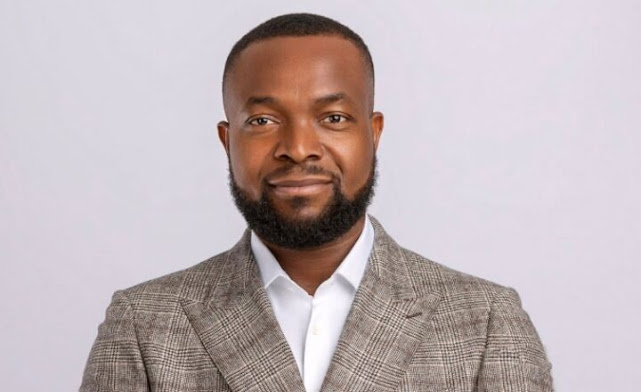The Minister of Communication, Innovations and Digital Economy, Federal Republic of Nigeria, Dr. ‘Bosun Tijani has called on top Artificial Intelligence (AI) researchers from Nigeria to work with the government in the process of crafting a National Artificial Intelligence (AI) Strategy.
The Minister made this call in a recently released white paper that details the need for a National AI Strategy for Nigeria to responsibly steer the AI revolution towards achieving national goals around job creation, social inclusion, and sustainable development.
According to PWC, “Artificial Intelligence (AI) has become a multi-purpose technology transforming production and service delivery, with the potential to significantly impact economic growth and social progress. Recent research shows that AI could contribute up to $15.7 trillion to the global economy by 2030, with $3 trillion from increased productivity and $9.1 trillion from new products and services.”
“The International Finance Corporation projects that the strategic adoption of AI could add up to $234 billion to Africa’s GDP by 2030. Nigeria in this loop is considered to have a fast-growing technology start-up ecosystem (having attracted 25% of the $1.3 billion funding to African tech start-ups in 2021) and with proactive leadership, is well-positioned to leverage AI for economic diversification and inclusive growth. As an innovation leader on the African continent, Nigeria needs to develop a national strategy to harness the power of AI for sustainable development.”
The Minister adds that “however, along with the opportunities, AI governance also poses some complex socio-technical challenges. As algorithms are deployed in high-stakes domains like healthcare, finance, and security, concerns are emerging around ethics, bias, transparency, job automation and privacy. Both policymakers and researchers are of a consensus that a human-centred approach is essential to ensure AI systems are fair and accountable to all, across gender, ethnic and socioeconomic groups.”
The call for experts is to build on existing work done by the National Information Technology Development Agency (NITDA) to develop a National Artificial Intelligence strategy. He believes that there is a need for a co-creation approach to engage and include top AI researchers of Nigerian descent globally, in the process of crafting the National AI Strategy.
He outlines the approach of identifying top AI researchers of Nigeria descent all over the world, regardless of their location.
Methodology
Researchers
To identify top researchers working in the field of AI globally, we obtained data from Lens (the same data source used by McKinsey for the “mckinsey-technology-trends-outlook-2023”). We first extracted all articles in the field of AI where the authors’ affiliate institutions are in Nigeria. This resulted in 1,349 publications (5,127 records when we split each of the articles by author). At the global level (regardless of the institution’s country), we obtained data from the same source, on the top 50,000 published journal articles in the field of AI for each of the last 6 years (2018 – 2023). That resulted in total observations of 299,905 publications. We equally split each of the articles by authors resulting in 1,195,598 observations. We then merged the two datasets to have 1,201,366 observations (after dropping observations with null authors).
Nigerian Names
To identify researchers of Nigerian descent, we trained our models to identify Nigerian names. We utilised “names-dataset” (Python library) which contains 491,655,925 records from 106 countries. For computing optimisation, we however utilised names from 14 countries (BR, CH, CN, ES, FR, GB, GH, HN, IN, JP, NG, RU, SA, ZA). This resulted in building our Machine Learning models with a set of 116,391,361 names which contained 8,999,788 Nigerian names.
Models
We built 2 Machine Learning models (Naïve Bayes & Logistic Regression) to enable us to identify researchers of Nigerian descent from AI-published papers. Our Naïve Bayes model reported 95.34% accuracy and our Logistic Regression model reported 97.40% accuracy (2-staged-level classification).
Research Index
To scientifically select top AI researchers among thousands of identified researchers, we developed a research index similar to the “h-index” but controlled for citation count and the experience of individual researchers and not just their number of publications. We utilise the “strata” library in R (SCImago Journal & Country Rank Data), which collates citations from over 5000 international publishers. We used the year 2021 ranking (27,339 journals) and merged them with our researcher’s data using their “ISSN”.
Stage 1 – Machine Support Decision
Predicted authors of Nigerian descent with Naïve Bayes. It produced 71,778 records of interest.
Indicated authors of Nigerian descent with Logistic Regression on the outcome of our Naïve Bayes prediction. It had 14,798 records of interest.
Identified unique records by removing duplicates (which resulted from splitting authors and ISSN). It produced 8,473 records.
Isolated researchers with at least 2 publications to enable us to calculate our researcher index. It produced 3,188 records of interest with 1,060 unique authors.
Isolated the top 145 researchers based on the index ranking and eventually isolated the most likely 100 names of Nigerian descent with publications in the field of AI.
Note: Every process up to this stage has been machine-derived with the least possible human interference.
Stage 2 – Crowd Sourcing
We are now looking to crowd-source the second stage of the selection. This is because we recognise that our models have the possibility of presenting about 4 false positives in 100 cases and the need to have more engagement and collaboration with the broader public in building the list of researchers.
We would like the general public to help update our list with other identified researchers, confirming their country of residence and their affiliate institutions where possible.


No comments:
Post a Comment